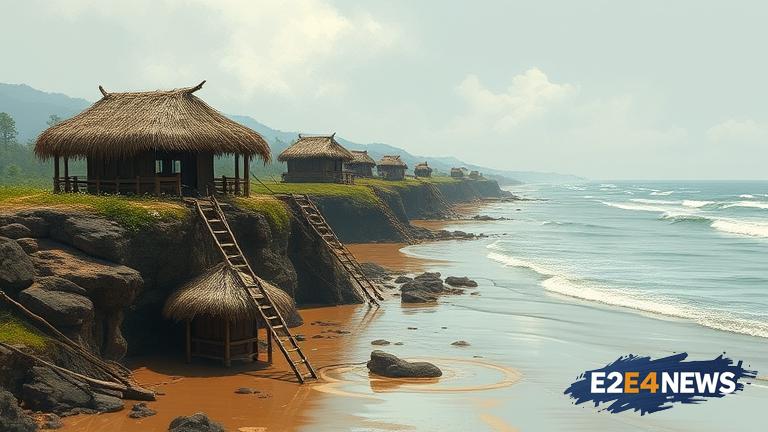Tribal communities across the United States are grappling with the harsh realities of climate change, as rising sea levels and more frequent natural disasters threaten their very existence. The impact of climate change is being felt disproportionately by indigenous communities, who are often located in low-lying coastal areas and lack the resources to adapt to the changing environment. In the face of these challenges, tribal leaders are being forced to make difficult decisions about the future of their communities, including whether to relocate to higher ground or attempt to protect their homes through costly and often ineffective measures. The Quinault Indian Nation in Washington state, for example, is facing the very real possibility of losing its ancestral homeland to the rising seas, and is exploring options for relocating its community to safer ground. Similarly, the Biloxi-Chitimacha-Choctaw Indian Tribe in Louisiana is struggling to protect its fragile coastal ecosystem from the impacts of climate change, including sea level rise and increased storm frequency. Despite these challenges, many tribal communities are refusing to give up, and are instead working to develop innovative solutions to the climate crisis. This includes the use of traditional knowledge and practices to inform climate adaptation efforts, as well as the development of new technologies and infrastructure to protect against the impacts of climate change. However, these efforts are often hindered by a lack of funding and resources, as well as bureaucratic hurdles and regulatory barriers. The federal government has a trust responsibility to protect the interests of tribal nations, but has often failed to provide adequate support and resources to help these communities adapt to the changing climate. As a result, many tribal communities are being forced to rely on their own resources and ingenuity to respond to the climate crisis, which can be a heavy burden to bear. The consequences of inaction are stark, with many tribal communities facing the very real possibility of displacement, cultural erasure, and even extinction. The loss of tribal communities would not only be a tragedy for the affected tribes, but would also represent a significant loss of cultural diversity and traditional knowledge. As the climate crisis continues to worsen, it is imperative that the federal government and other stakeholders take immediate action to support the climate adaptation efforts of tribal communities, and work to address the systemic inequalities and injustices that have contributed to the vulnerability of these communities. This includes providing adequate funding and resources, as well as working to dismantle the bureaucratic and regulatory barriers that have hindered the ability of tribal communities to respond to the climate crisis. Ultimately, the fate of tribal communities in the face of climate change will depend on the ability of these communities to adapt and thrive in a rapidly changing world, and on the willingness of the federal government and other stakeholders to provide the support and resources needed to make this possible. The clock is ticking, and the time for action is now. The future of tribal communities depends on it. The impact of climate change on tribal communities is a pressing issue that requires immediate attention and action. The federal government must take a more proactive role in supporting the climate adaptation efforts of tribal communities, and work to address the systemic inequalities and injustices that have contributed to the vulnerability of these communities. By working together, we can help to ensure the long-term survival and thriving of tribal communities, and preserve the cultural diversity and traditional knowledge that are so essential to our collective well-being.
